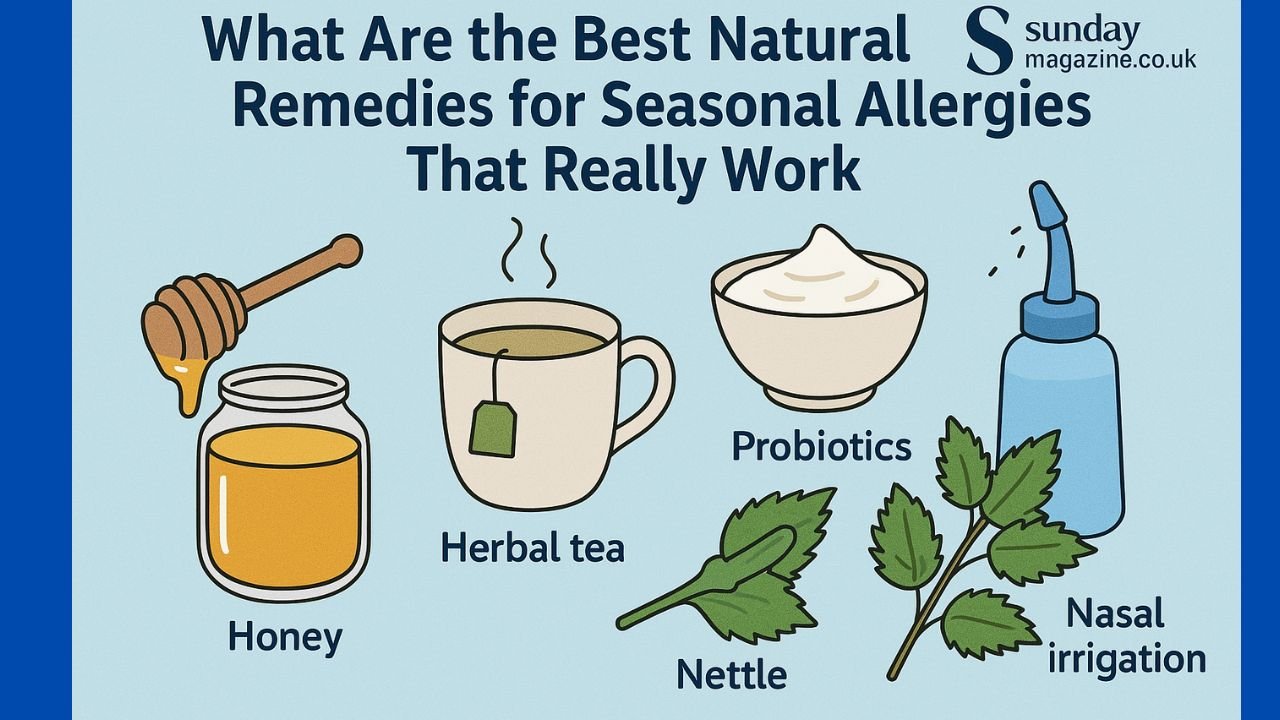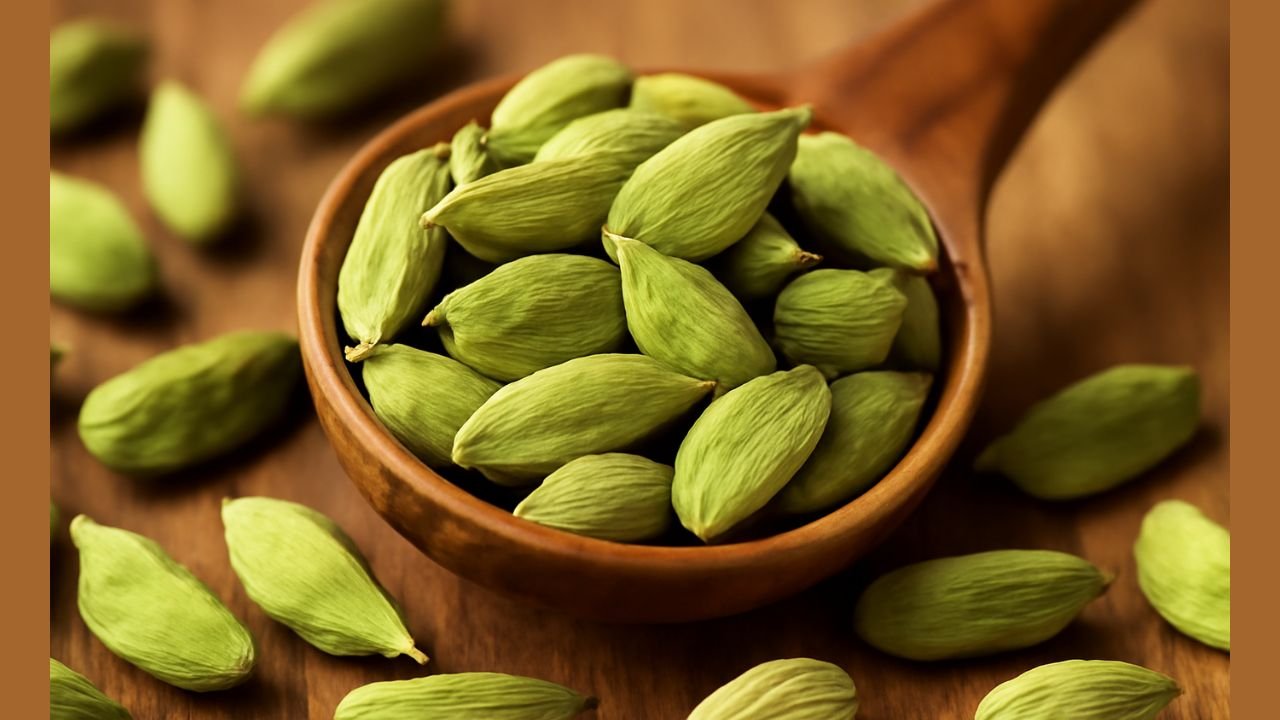Seasonal allergies are a common issue that affects millions of people every year. Whether it’s pollen from blooming flowers, tree pollens, or grass allergens, seasonal allergies can cause frustrating symptoms like sneezing, runny nose, itchy eyes, and fatigue. While medications can help alleviate these symptoms, many people are increasingly turning to natural remedies for seasonal allergies, seeking relief without relying on synthetic drugs.
In this article, we will explore the best natural remedies for seasonal allergies that have been shown to provide relief. From herbal teas to essential oils, we’ll cover various natural solutions and explain how they can help manage allergy symptoms effectively. So if you’re wondering how to ease your seasonal allergy symptoms using natural methods, read on for actionable insights and evidence-based solutions.
Introduction to Seasonal Allergies
Seasonal allergies, also known as hay fever or allergic rhinitis, occur when the immune system overreacts to airborne allergens like pollen, mold, or dust. These allergens can trigger inflammation in the nasal passages, sinuses, and eyes, leading to symptoms such as sneezing, congestion, watery eyes, and even difficulty sleeping.
For many people, seasonal allergies are a recurring issue that peaks during certain times of the year. Whether you live in a region with high pollen counts in the spring or experience seasonal flare-ups in the fall, the discomfort can significantly affect your quality of life. As a result, many are searching for natural remedies that can offer effective relief without the side effects commonly associated with over-the-counter antihistamines or decongestants.
How Seasonal Allergies Affect Your Health
Seasonal allergies can have a variety of impacts on your health, both physically and mentally. While the most common symptoms are sneezing, nasal congestion, and itchy eyes, they can also cause fatigue, irritability, and difficulty concentrating. In some cases, they may even trigger asthma attacks or worsen pre-existing respiratory conditions.
The underlying cause of seasonal allergies is an overactive immune response to allergens. When these allergens enter the body, the immune system releases histamines and other chemicals to fight off what it mistakenly perceives as a threat. This immune response can cause inflammation in the nasal passages, resulting in typical allergy symptoms.
The Science Behind Natural Remedies for Allergies
Natural remedies for seasonal allergies have gained popularity because they aim to address the root causes of allergic reactions in a more holistic and gentle manner. Many of these remedies work by strengthening the immune system, reducing inflammation, and helping to clear nasal passages.
While scientific research supporting some natural remedies is still evolving, there is growing evidence to suggest that certain herbs, foods, and practices can provide real relief for seasonal allergy sufferers. In the following sections, we will dive into some of the best natural remedies for seasonal allergies and discuss how they can help.
Best Natural Remedies for Seasonal Allergies
1. Local Honey
Local honey is one of the most popular and well-known natural remedies for seasonal allergies. The idea behind using honey for allergies is based on the concept of immunotherapy. The theory suggests that by consuming honey produced by local bees, you can expose yourself to small amounts of pollen, which may help your immune system gradually become less sensitive to it.
How it works: Local honey contains trace amounts of pollen that the bees collect from flowers in your area. By eating small amounts of this honey regularly, you may build up a tolerance to local pollen, potentially reducing allergy symptoms over time.
How to use it: Consume one to two teaspoons of local honey daily, preferably before the allergy season begins. Start a few months before allergy season for the best results.
2. Apple Cider Vinegar
Apple cider vinegar (ACV) is another popular remedy for seasonal allergies. It is believed to help balance the body’s pH levels, reduce mucus production, and clear nasal congestion.
How it works: ACV contains acetic acid, which may help in breaking down mucus and supporting detoxification. Some believe that it also helps strengthen the immune system.
How to use it: Mix one to two tablespoons of raw, unfiltered apple cider vinegar in a glass of water and drink it once or twice a day. You can also add honey to improve the taste.
3. Butterbur
Butterbur is a herb that has shown promise in treating seasonal allergies. Several studies have found that butterbur extracts can reduce the severity of allergic rhinitis symptoms by acting as a natural antihistamine.
How it works: Butterbur works by blocking histamines, the chemicals released during an allergic reaction that cause inflammation and irritation. It also has anti-inflammatory properties.
How to use it: Butterbur is available in supplement form. Look for products that contain at least 15% petasins (the active compounds). It’s important to choose a product that has been purified to remove toxic substances.
4. Neti Pot
A neti pot is a natural and effective tool for clearing the sinuses and alleviating congestion. It involves irrigating the nasal passages with a saline solution to rinse out allergens, dust, and mucus.
How it works: Using a saline solution, the neti pot helps wash away the allergens that cause irritation, providing relief from nasal congestion and pressure.
How to use it: Fill the neti pot with a saline solution (or purchase a pre-made saline solution), tilt your head over a sink, and pour the solution into one nostril while allowing it to exit through the other. Repeat for the other nostril.
5. Probiotics
Probiotics, which are beneficial bacteria, can play a role in managing allergy symptoms. Studies have shown that a healthy gut microbiome can influence the immune system and reduce allergic responses.
How it works: Probiotics support gut health, which in turn helps regulate immune function. A balanced gut microbiome may decrease inflammation and reduce the severity of allergic reactions.
How to use it: Take probiotic supplements or eat foods rich in probiotics, such as yogurt, kefir, sauerkraut, and kimchi.
6. Essential Oils
Essential oils like peppermint, eucalyptus, and lavender are often used in aromatherapy to alleviate symptoms of seasonal allergies. These oils can help open up airways, reduce inflammation, and relieve congestion.
How they work: Essential oils are thought to have anti-inflammatory, antiseptic, and decongestant properties, making them ideal for easing allergy symptoms.
How to use them: Diffuse essential oils in your home, or inhale them directly from a tissue or cotton ball. You can also dilute essential oils with a carrier oil (such as coconut oil) and apply them topically to your chest or temples.
7. Quercetin
Quercetin is a flavonoid found in fruits, vegetables, and herbs that has been shown to have antihistamine effects. It is believed to help stabilize mast cells, which release histamines during an allergic reaction.
How it works: Quercetin helps reduce the release of histamines, which can help alleviate allergy symptoms like itching, swelling, and nasal congestion.
How to use it: Quercetin can be consumed through foods like apples, onions, and berries, or taken as a supplement.
8. Herbal Teas
Herbal teas made from plants like chamomile, peppermint, and ginger have long been used as natural remedies for seasonal allergies. These herbs can help reduce inflammation, soothe irritated airways, and support digestion.
How they work: These herbs contain compounds that can help relax the respiratory muscles, reduce mucus production, and support the immune system.
How to use them: Drink one to two cups of herbal tea daily. For the best results, opt for organic, high-quality teas.
9. Turmeric
Turmeric, a spice that contains the active compound curcumin, has powerful anti-inflammatory and antioxidant properties. It can help reduce the inflammation caused by allergens.
How it works: Curcumin in turmeric inhibits inflammatory pathways in the body, making it effective in reducing allergy symptoms.
How to use it: You can add turmeric to your food, drink turmeric tea, or take curcumin supplements.
10. Garlic
Garlic is a potent natural remedy for seasonal allergies due to its anti-inflammatory, immune-boosting, and antibacterial properties. It is known to help reduce swelling in the nasal passages and improve respiratory function.
How it works: Garlic contains allicin, which has been shown to reduce the production of histamines and alleviate allergy symptoms.
How to use it: Incorporate fresh garlic into your meals or take garlic supplements.
How to Prevent Allergies Naturally
Prevention is key when it comes to managing seasonal allergies. Here are some natural tips to reduce exposure to allergens and prevent allergy flare-ups:
- Stay indoors during peak pollen hours (usually early morning and late afternoon).
- Use air purifiers in your home to reduce pollen levels.
- Wash your hands and face after being outside to remove pollen from your skin and hair.
- Close windows during high pollen days to keep allergens out.
- Shower and change clothes after outdoor activities to remove pollen.
Frequently Asked Questions (FAQs)
1. What are the quickest ways to relieve allergy symptoms naturally?
- Using a neti pot or saline spray to clear your nasal passages.
- Drinking herbal teas like chamomile or peppermint.
- Inhaling essential oils like eucalyptus or peppermint.
2. Can local honey help with seasonal allergies?
Yes, consuming local honey may help desensitize you to local pollen, potentially reducing allergy symptoms over time.
3. Are probiotics effective in treating seasonal allergies?
Yes, probiotics can support immune health, and some studies suggest they may help reduce the severity of allergy symptoms.
Conclusion
Seasonal allergies can be a frustrating and disruptive condition, but natural remedies offer a variety of options for managing symptoms. Whether you choose to use honey, apple cider vinegar, or herbal teas, many of these remedies have been shown to provide relief without the side effects of pharmaceutical treatments. By combining these natural solutions with preventive measures, you can reduce the impact of seasonal allergies and improve your quality of life during allergy season.





